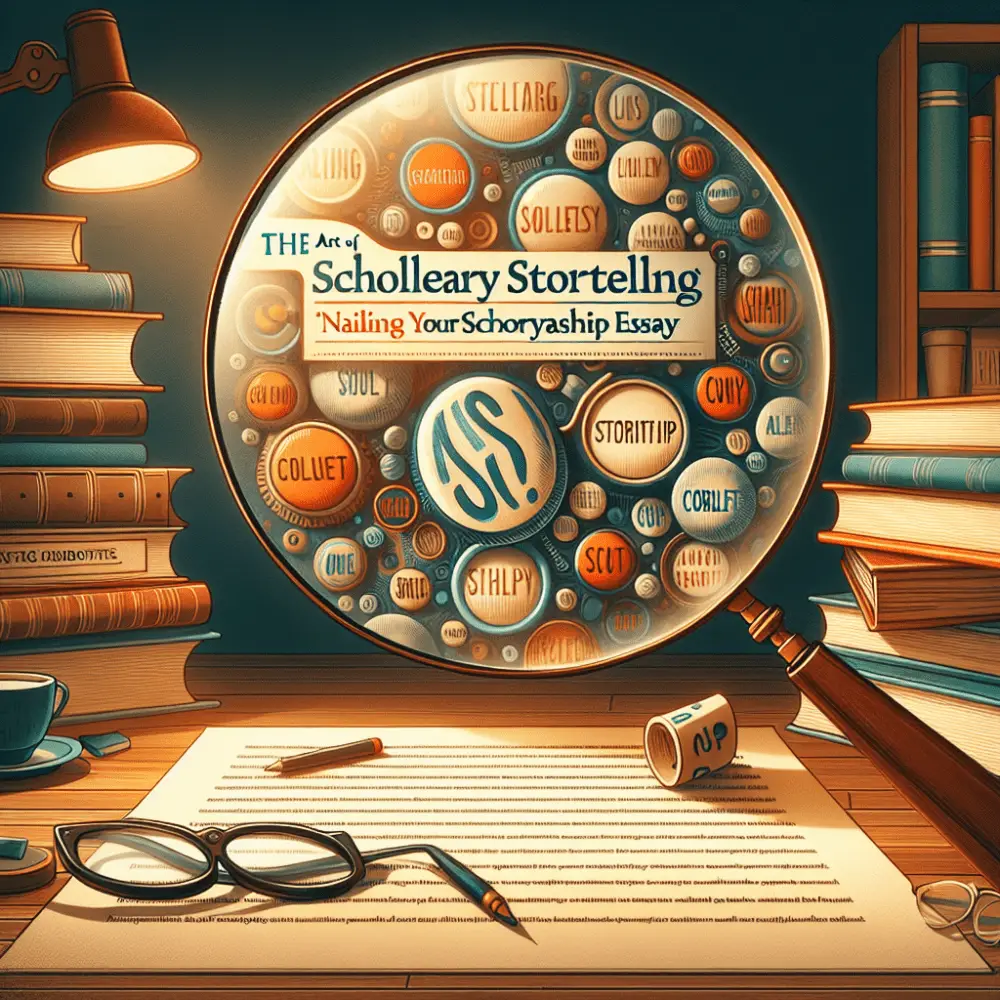
The Art of Scholarly Storytelling: Nailing Your Scholarship Essay
Introduction:
Scholarship essays are a crucial part of the application process for many students. They provide an opportunity to showcase one’s unique experiences, skills, and goals in a way that sets them apart from other applicants. However, crafting a captivating and persuasive essay can be quite challenging. To truly excel in the art of scholarly storytelling, it is important to understand the key elements that make an essay stand out. This article will guide you through the process of nailing your scholarship essay with tips and insights that will help you leave a lasting impression on the judges.
1. Understanding the Prompt:
The first step in writing a successful scholarship essay is thoroughly understanding the prompt. Take the time to carefully read and analyze what is being asked of you. Identify keywords or phrases that can guide your response and help you stay focused on addressing the prompt directly. By having a clear understanding of what the judges are looking for, you can tailor your essay to meet their expectations.
2. Brainstorming Ideas:
Once you have a solid grasp on the prompt, it’s time to brainstorm ideas for your essay. Think about your personal experiences, achievements, goals, and values that align with the scholarship’s mission or purpose. Consider how these elements can be woven into a compelling narrative that effectively communicates who you are as an individual.
3. Structure and Organization:
To ensure clarity and coherence in your essay, it’s crucial to establish a strong structure and organization. Start with an attention-grabbing introduction that hooks the reader from the beginning. Follow this with body paragraphs that expand upon your main ideas, using relevant examples and evidence to support your claims.
4. Showcasing Your Unique Voice:
Your scholarship essay should reflect your unique voice and personality while maintaining a professional tone. Avoid using overly technical jargon or complex language that may alienate readers who are not familiar with your field of study. Instead, strive for a balance between academic sophistication and relatability.
5. Telling a Compelling Story:
One of the most effective ways to engage readers and make your essay memorable is by telling a compelling story. Use vivid language, sensory details, and descriptive imagery to transport your readers into your experiences. Show, don’t tell, how these experiences have shaped your character and influenced your goals.
FAQs:
Q: How long should my scholarship essay be?
A: The length requirements for scholarship essays can vary. It is important to carefully read and follow the guidelines provided by the scholarship organization. Typically, essays range from 500 to 1,000 words.
Q: Should I include personal anecdotes in my essay?
A: Yes! Including personal anecdotes can greatly enhance the storytelling aspect of your essay. However, make sure that these anecdotes are directly relevant to the prompt and contribute to the overall message you want to convey.
Q: How do I make my essay stand out from others?
A: To make your essay stand out, focus on showcasing your unique perspective and experiences. Avoid cliches and generic responses; instead, delve deep into what sets you apart from other applicants by highlighting specific examples that demonstrate your skills, passions, and goals.
Q: Should I have someone else proofread my essay?
A: Yes! Having another person proofread your essay can help identify any grammar or spelling errors you may have missed. They can also provide valuable feedback on the overall clarity and coherence of your writing.
Conclusion:
Writing a scholarship essay is an opportunity to not only secure financial aid but also to showcase who you are as an individual. By understanding the prompt, brainstorming ideas, creating a strong structure, showcasing your unique voice, and telling a compelling story, you can write an outstanding scholarship essay that leaves a lasting impression on its readers. Remember to be authentic and stay true to yourself throughout the writing process. Good luck!












